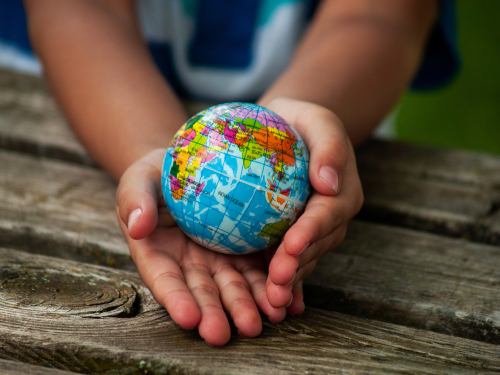The Profound Impact of Cultural Awareness
Culture—whether national, regional, corporate, functional, or team level—influences who we are, how we relate, and the way we operate in the workplace.
As anyone who has lived abroad for a while probably knows, living in a new culture can be a life-changing experience.
Growing up in San Diego, California, I first indulged a lifelong fascination with travel and exploring new cultures by living for a short time in nearby Mexico. But it was later, during my six years in Japan, when I really came to understand and appreciate the value of being immersed in a completely new culture.
I went to Japan—to Tokyo—for the first time at age 19. I had just come off of an intensive 10-week course in Japanese at the Monterey Institute of International Studies, but nothing could have prepared me for the bustling, exhilarating city of Tokyo or the rich and unique Japanese culture, so vastly different from the Western culture in which I’d been raised. The place made a deep impression on me. I spent a year there living with a host family and attending university, and even when I returned to the states to finish college, I knew I’d return.
It was after graduating college that I moved back to Japan, this time to the country’s northernmost island, to take on an assignment teaching conversational English at a private high school for girls. I had no formal teaching experience and no training, and I was the only non-Japanese full-time faculty member. The whole experience—getting used to a completely different educational system, learning a new profession overnight, adjusting to a place where snow piled up six months out of the year—was a stretching assignment, indeed. I had to learn quickly how to organize lesson plans and utilize what Japanese I knew to engage my students, who themselves were struggling with a new language, one with a different alphabet and grammatical structure. But in this time I learned something important that I carry to this day: how profoundly empathy plays into collaborating toward a common goal with people who are different from us.
Empathy requires understanding, which in itself requires patience and mindfulness, particularly when you are trying to engage with a person from a wholly different culture.
One way that Japanese culture provided an inroad to empathy for me was through the Japanese tea ceremony. Rife with significance and rich in tradition, the ceremony can only truly be experienced by understanding the Zen Buddhist concepts behind it, including the beauty of refined physical movements. Repeatedly practicing the steps of making and receiving tea, however basic that sounds, gave me practical instruction in mindfulness and patience as well as a deep respect for simplicity. I saw how these elements can transfer into our daily lives, how strongly they can impact forging meaningful relationships across cultures.
During the six years spent living in Japan, I was fortunate to make life-long Japanese friends who continued to patiently teach me about their culture and constantly show me new ways of looking at the world differently. In Japan—and later, when my work took me to other Asian countries—I learned about living in a collectivistic and hierarchical society where people understand their place in relation to others, communicate deferentially, and also appreciate artistic sensibilities that are not a part of life in the United States. This cultural understanding certainly influenced the many years thereafter when I worked in global corporate positions in the United States (serving in marketing and public relations capacities for a Japanese manufacturer in New York and New Jersey, for example, or leading the international public relations efforts for Tiffany & Co.). And now, after having conducted business in several Asian countries, this culture permeates how I operate: from the way I communicate to various audiences to how I try to view the world through a different lens as a means of displaying empathy.
My experiences living and working abroad have helped me—as a global executive coach, as an intercultural communications expert, as a person—to learn that becoming aware of cultural context is imperative if we want to grow as wise, effective leaders who are insightful and responsive to the people we work with and for.
Your Global Executive Coach
Brian Szepkouski, Intercultural Communications Expert and CEO of Szepko International, is a leading authority on international executive development and strategic planning for global business expansion. Brian relies on his extensive global experience to offer unparalleled consulting and coaching to global team leaders looking to excel in their international roles. To discover how to develop global leadership skills, achieve team alignment, and increase organizational effectiveness, contact global executive coach Brian Szepkouski today.

